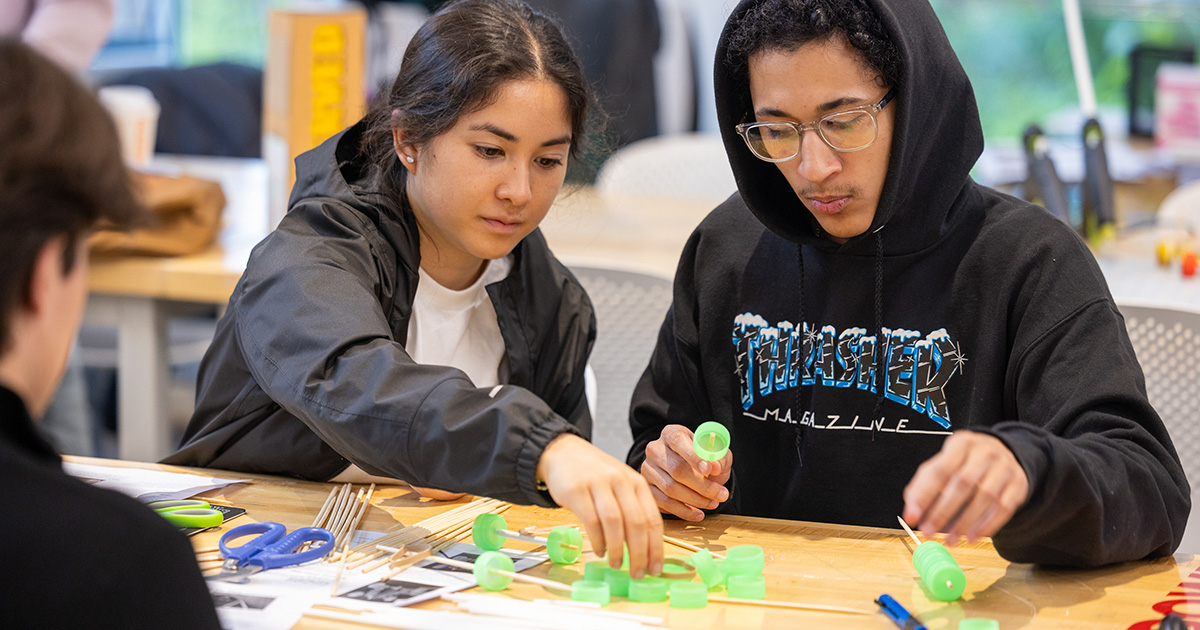Athletes, Entrepreneurs, and the Competitive Drive

During the Sochi Olympics, more than 1,300 gold, silver, and bronze medals were awarded to athletes from around the world. Closer to home, runners layered in winter gear diligently grind out long runs and practice hills in anticipation of the Boston Marathon in April. And, in accelerator conference rooms and campus lecture halls, entrepreneurs polish their pitches, vying for a share of the winnings in business plan contests.
Comparing an entrepreneur pitching her business idea to an Olympic athlete might feel like a stretch, but it shouldn’t. The promise of networking, the allure of funding, the dream of victory, and the satisfaction of leaving every ounce of effort out on the field can sweeten the experience, but competition can be a way of life regardless of the outlet.
Competition as a Tool
Jessica Beck and Marcela Sapone are the co-founders of Alfred, a business they describe as the “Uber for maids.” The two have spent the last year refining the concept, pitching it in competitions, and building the business. “We pitched in New Orleans at the Reaching Out MBA Conference last year. We tied for first place out of hundreds of people, and while it provided practice and confidence, most importantly, we also got our first VC conversation out of that competition,” said Beck. For Sapone, the competition exposed the tension between humility and hubris. “You go up there with extreme overconfidence and conviction in your beliefs, but at the same time, you really, really need to listen and be open to being wrong. The single most important prize you can win in any competition is that conviction.”
Father daughter duo Rich and Kendall Ford’s competitive streak runs in the family. This spring, the pair will take on the Escape from Alcatraz triathlon in San Francisco as part of the Babson team; Rich will tackle the swim leg, while Kendall, a junior at Babson, is training for the full event. As Kendall says, “Competition drives me to push myself every day toward my end goal, and takes over when I’m tired, sore, or in a bad mood.” For Rich, this drive carries over into his daily life, too. “It’s part of my DNA. As the director of worldwide sales for a software company, my team and I compete every single day.”
Likewise, Kristen Sweeney is no stranger to competition. The Babson first-year is an alpine skier, racing in the slalom and giant slalom. She has competed for the Irish National Team, and, last year, notched 82 races in four months. “I compete because I like the challenge it brings,” she says. “Skiing is one of the hardest sports out there because the conditions are always different and there are so many variables you can’t control, so you have to pay close attention to the details and be really reactive.”
Preparing to Win
Each competitor agreed that preparation was a key predictor of their success. Sweeney relies on inspection runs of the course before each race, looking for spots on the mountain where she can gain speed, or tricky areas that could spell trouble. For the Alfred team, their goal in practice is to always be on their A game. “The experience of preparing does make you sharper,” says Beck, “but the real motivation is the competition itself since it’s the one thing standing between you and who you want to be.” Richard Ford applies the preparation he puts into swimming to his job as well. “If you prepare well,” he says, “executing on the plan is fairly straightforward.”
For athletes, a season can be defined by two or three marquee games. Beck, who has played on sports teams since middle school, compares sports to business competitions. She and Sapone have identified two or three major pitch contests and are participating in the New Venture Competition at Harvard Business School, where they are students. At the same time, they seek out reputable venues that can serve as entrepreneurial warm-up games. These offer safe opportunities to learn, and the co-founders carefully analyze the questions they’re asked and apply the feedback they receive. Sapone is quick to point out that in reality, the Alfred team trains every day. “Every conversation is an opportunity. It’s all training. The competitions are formal, but just like athletes, if you really want to win, you run every single day.”
Says Sweeney, “Competition is a chance to look at the rivals in your field, compare yourself, and reflect.” This scenario plays out in business much the same way as it does in athletics. Organizations or teams that don’t have an eye on their competition risk being caught off guard or missing market expectations altogether, which can be a major setback to a business.
For now, Babson students Ford and Sweeney are just excited to be racing, setting their competitive sights on the rest of the season and the upcoming triathlon. Sweeney, however, doesn’t hesitate to imagine applying this drive to a future business endeavor. “I dream of opening a bakery and café,” she says, “but not too far from a mountain!”
Interested in learning more about business plan competitions? The Arthur M. Blank Center at Babson College hosts the B.E.T.A. Challenge, Babson’s flagship business plan competition. For additional resources, sites such as iStart.org and BizPlanCompetitions.com offer comprehensive listings of hundreds of contests.



